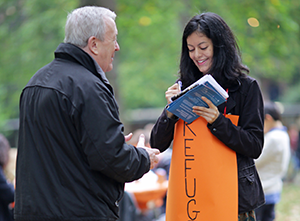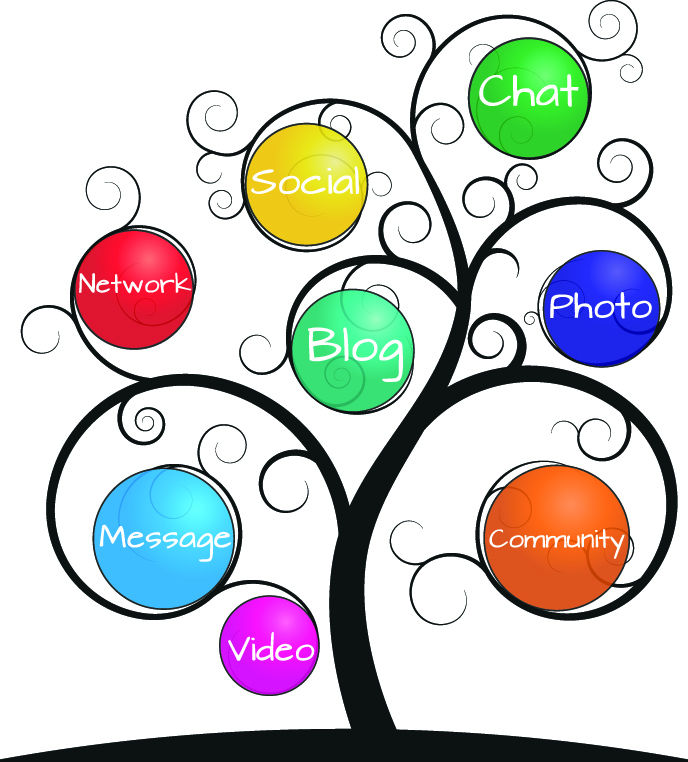 In this guest blog Sophie Duncan, Deputy Director of the National Coordinating Centre for Public Engagement, reflects on public engagement in the humanities, and on the Being Human festival as a ‘renaissance’ in this area. The post also offers some practical ‘how-to’ tips on public engagement activity. The Being Human festival is led by the School of Advanced Study, University of London in partnership with the Arts and Humanities Research Council and the British Academy.
In this guest blog Sophie Duncan, Deputy Director of the National Coordinating Centre for Public Engagement, reflects on public engagement in the humanities, and on the Being Human festival as a ‘renaissance’ in this area. The post also offers some practical ‘how-to’ tips on public engagement activity. The Being Human festival is led by the School of Advanced Study, University of London in partnership with the Arts and Humanities Research Council and the British Academy.
The value of the humanities
The Being Human festival promises to be a key focal point for a renaissance in public engagement with the humanities. How so? It goes without saying that humanities researchers engage with the public in a variety of ways, and many do it rather well. However Professor Barry Smith suggests that despite this, there is very little public understanding of the value and nature of humanities research.
The Being Human festival aims to address this through establishing an annual event where humanities scholars from across the UK put down their books, and seek to engage the public in a week of thoughtful, challenging and engaging activity. One opportunity is to borrow a ‘book’ from The Human Library. However, if you were expecting to curl up on the sofa with a cup of tea, you’ll be rather surprised that your ‘book’ comes in the shape of a humanities researcher who will provide a pithy summary of the topic you were interested in. This novel event celebrates the role of humanities scholars in interpreting and making accessible wisdom and knowledge captured in archive collections.
As part of the development of the festival I had a great time facilitating a workshop last month for AHRC (Arts and Humanities Research Council) large grant holders. It was a real treat to be with such an engaged group of researchers, who have so much to contribute to a debate about the role and nature of public engagement with the humanities.
Doing public engagement
At the National Coordinating Centre for Public Engagement, we define ‘public engagement’ as describing ‘the myriad of ways in which the activity and benefits of higher education and research can be shared with the public. Engagement is by definition a two-way process, involving interaction and listening, with the goal of generating mutual benefit’.
So what are the key factors in developing quality interactions between humanities researchers and the public? Is there something uniquely different about public engagement with the humanities – or are there principles that underpin quality engagement in any discipline. The workshop sought to address these questions and here are some of the things we discussed:
- It’s all in a name: The name of an event or initiative is often the first connection you make with those you wish to engage, so it should instantly connect in some way with your target participants. However, it also needs to be relevant to the content and style of event you are organising. So it really needs to do what it says on the tin, and not just be an enticing lie.
- Be purposeful: Activities that don’t have a purpose may feel like good ideas, but they rarely achieve anything. There are some exceptions, but if you are going for quality engagement then being really clear about why you want to engage people is a great starting point. It will affect decisions about what you do and why.
- Know your audience: Critical to the success of any engagement is an understanding of who you are trying to engage. The more you know about who they are the more likely it is that you can share something they would like to participate in. Working with partners can really influence the timing, content, marketing, and location of your event and give key insights and routes to your target participants. The more engaged you are with your audience, the more engaging your activity will be.
Enjoy it! Evaluate it!
- Have fun: Engagement can be innovative and enjoyable – so do some collective thinking with people in your department, or others across your university or organisation.
- Evaluation is a tool – use it! Evaluation used wisely can be a helpful tool to inform the development of your activities, and reflect on how they are working, or not. Embedding evaluation into the development of your activities can provide you with a critical friend to inform your thinking and practice and to evidence the impact of your work.
- Marketing is something you can’t afford to forget. It really helps to think of marketing as an engagement activity in its own right. Who are you trying to engage with? What types of media do they use to inform what they do?
- People can be really curious about themselves, their culture and their lives, and it is the role of arts and humanities to nurture and satisfy that curiosity.
- Get students involved. At an early stage of their humanities career, students can often captivate people with their enthusiasm for a subject that is still unfolding in its beauty and resonance. It will also help them develop useful skills whatever their future career.
Share what you do: not just with your colleagues, but with the wider sector. This inspires and informs others about approaches they could take and likely issues that arise from those approaches, and builds a body of knowledge about public engagement with the humanities.
In reflecting on the workshop, while it was clear that the festival was going to be animated by some wonderfully imaginative engagement activities, it would be interesting to further explore the unique contribution that humanities researchers can make to our understandings of public engagement and how it is enacted.
I look forward to seeing the full programme in September.
_______________________________________________________
The Being Human festival will feature over 100 events dedicated to public engagement activity across the UK. A preview programme is now available, with the full programme due to be released in early September. For updates on the festival follow us on Twitter @BeingHumanFest, and on Pinterest. Don’t forget to sign up to the e-newsletter, too!

